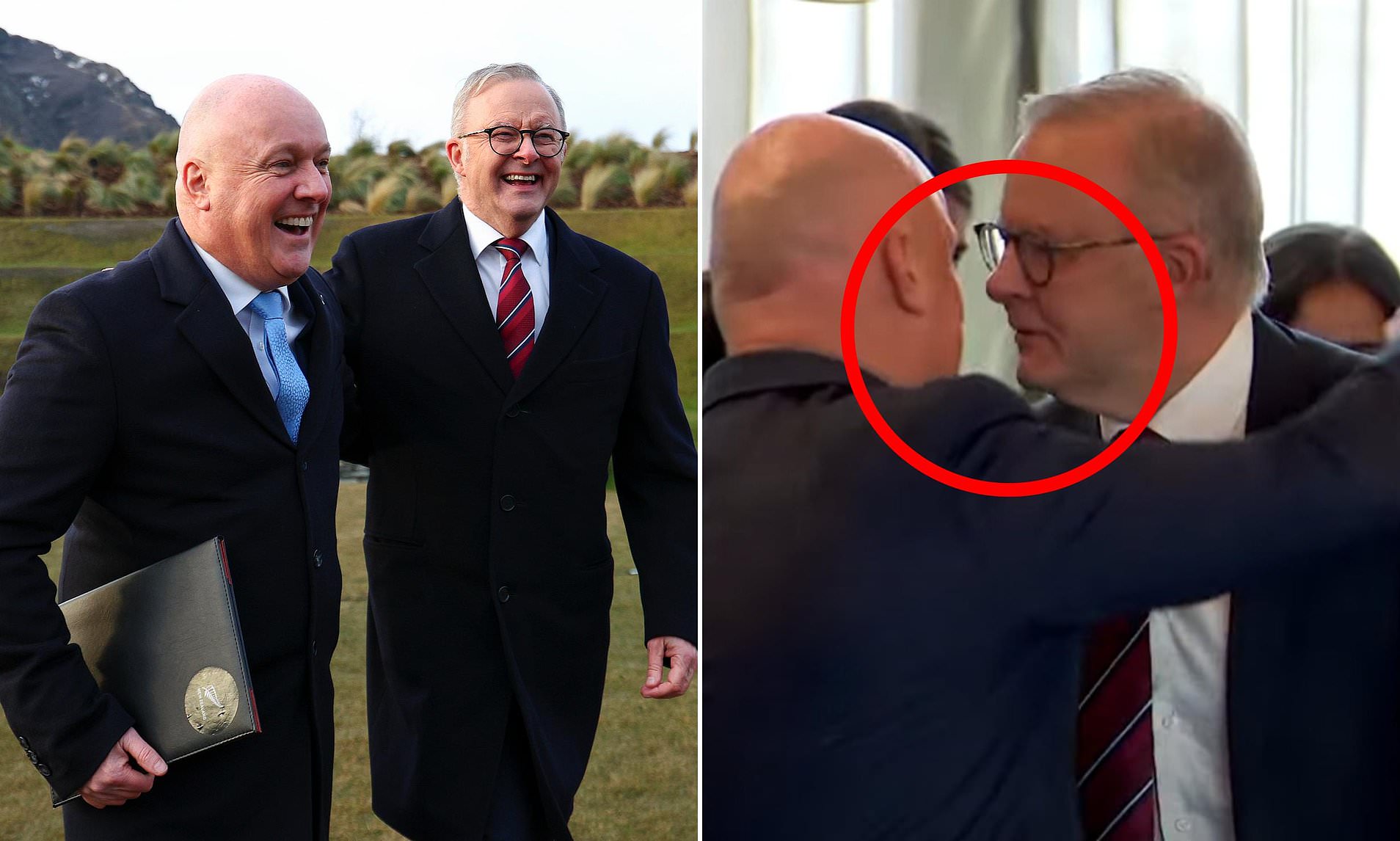
A Diplomatic Moment in Queenstown
Australian Prime Minister Anthony Albanese found himself in an awkward diplomatic situation during a visit to Queenstown, where he attempted the traditional Māori greeting known as the hongi. This gesture involves pressing one's nose against another person's, symbolizing the sharing of breath and life. Albanese had successfully exchanged hongi with members of the local iwi, but when he approached New Zealand Prime Minister Christopher Luxon, the latter opted for a standard handshake instead.
The moment sparked a wave of reactions on social media, with many users commenting on the unexpected turn of events. Some humorously suggested that Luxon was "clutching" Albanese like a small child clinging to its mother. Others joked that once Luxon extended his arms, there was no escape for the Australian leader. The incident was even compared to a previous event where Luxon had been loudly booed at an ANZ Netball Premiership match. One user quipped, "Luxon finds an Aussie tourist who wasn't at the netball booing him."
Despite the lighthearted nature of some comments, not everyone found the moment amusing. Some New Zealanders expressed sympathy for Albanese, calling the situation "embarrassing" and suggesting that someone from the New Zealand National Party should speak to Luxon. Others claimed that Albanese had no choice but to comply with Luxon's gesture, referring to it as a "Luxon Lovefest."
Shared Stances on International Issues
The two leaders were in Queenstown for the annual Australia-New Zealand Leaders' Meeting, where they reaffirmed their shared stance on recognizing Palestinian statehood. However, they stopped short of setting a specific timeline for this recognition. Both emphasized that their countries would make decisions independently, based on their own economic and security interests.
"We make our own assessments in our own economic and security interests," Luxon stated. Albanese echoed this sentiment, saying, "Australia has exactly the same position. As a sovereign nation, we make our decisions."
Albanese also addressed the ongoing Gaza crisis, expressing the desire of Australians for a ceasefire, the release of hostages, and the unimpeded entry of aid into the region. He condemned the continued conflict, stating that it was completely unacceptable for the humanitarian catastrophe to persist. Albanese reiterated Australia's call for Israel to abandon its plan to occupy the entirety of the Gaza Strip.
However, he refused to comment on whether Australia would impose further sanctions on Israel, as demanded by the Greens and other pro-Palestinian groups. Albanese criticized such demands as "slogans" and stressed the importance of clear government actions rather than reacting to protest slogans.
Sanctions and International Developments
Australia had previously imposed sanctions on two far-right Israeli ministers, Itamar Ben-Gvir and Bezalel Smotrich, who have been accused of inciting violence against Palestinians in the West Bank. This move came amid growing international pressure for recognition of a Palestinian state.
France, the United Kingdom, and Canada announced plans to formally recognize a Palestinian state at a United Nations summit next month. Meanwhile, the United States, Israel's closest ally, continues to pursue trade negotiations that could result in tariffs, including a proposed 15 per cent duty on New Zealand goods.
As the global community grapples with the complexities of the Middle East conflict, the diplomatic interactions between Australia and New Zealand remain a focal point of regional cooperation and mutual understanding.
